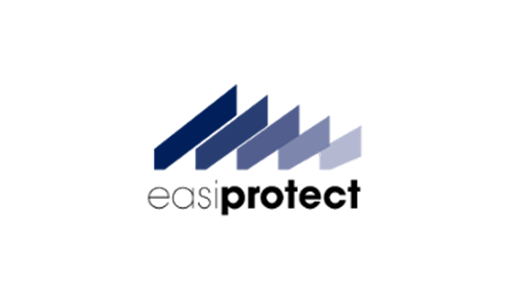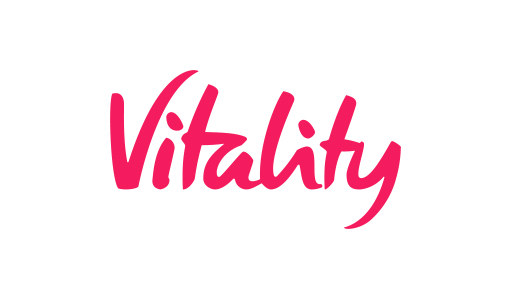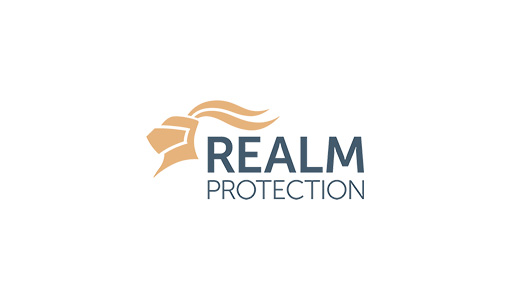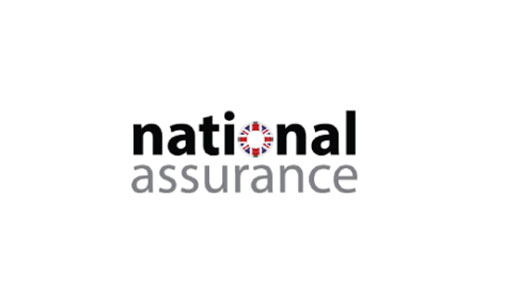Howden Life & Health
Income Protection
Allows your finances to be taken care of when you can’t, so your family doesn’t miss out
Your rewards
For you - valuable FREE additional services whilst a client of Howden Life & Health
Find out more trending_flat- FREE will
- FREE prize draw
- FREE health support
Why choose Howden Life & Health for your Income Protection
Income protection is designed to replace or supplement your income in the event that you are unable to work. Insurance can be taken out to cover accidents, sickness and is intended to provide short term cover ranging from 12 to 24 months or up until retirement on long term accident & sickness cover, depending on the policy. Common reasons for taking out income protection include protecting mortgage or loan payments whilst ensuring you are able to maintain your lifestyle and can continue to financially support your family and loved ones.
Policies fall into two main categories, Permanent Health Insurance (PHI) and Accident, Sickness and Unemployment Cover (ASU). Despite both providing income protection, they are very different and are often confused for one another and misunderstood. The main difference is PHI provides long term financial protection (payments continue until a specified age of retirement) and ASU provides short term financial protection (payments are made for a maximum of two years). Both policy types pay a monthly benefit which is exempt from tax.
The benefits of Income Protection
- Provides more than state benefits (£109.40 a week)
- Covers accident and sickness
- Option to cover redundancy
- Option to cover bills
- Avoids risk of arrears losing your home
- Allows your family to maintain their lifestyle
- Pays out monthly
Helpful Information
Types of Accident, Sickness and Unemployment Insurance.
Accident, sickness and unemployment insurance has many variations of policy types within it, all of which will usually pay you every month, for up to one year if you are out of work. A lot of policies are linked purely to your income and how much you earn each month - known as just 'income Protection'.
Other policies can be linked to a financial commitment, such as your mortgage, rental payments or a loan. As such, you would need to have the relevant commitment in place to purchase that cover. Some policies cover specific regular direct debit payments like utilities, insurance payments and council tax.
If your accident, sickness and unemployment protection is linked to a specific commitment, you will need to provide evidence of this commitment in the event of a claim. This means that paperwork is a little more in-depth than with a pure income protection for accident, sickness or unemployment. The cover could likely be slightly more competitive though because the insurer may deem that someone covering a specific bill is less risk than somebody who is just covering their income.
Why Accident, Sickness and Unemployment Insurance?
Accident, sickness and unemployment insurance offers a lot more than just financial security. It protects your well-being and relieves you from any unforeseen stress.
Whilst we often think 'it won't happen to me' it's important to remember that this situation is completely out of your control and so having Accident, Sickness and Unemployment insurance can help protect you and your family get through what will already be a very stressful time.
You want to make sure that if you are unwell due to an Accident or Sickness you can take the time to recover properly so that you are not rushing back to work before you should.
Unemployment cover is much the same because nobody can imagine it happening to them until it does. By having the policy to cover you, you'll be able to take the time to find the right job suited to your expertise, instead of rushing into something and then changing down the line.
The sooner you protect yourself, the sooner you will be able to feel secure should you need to claim. Please remember that accident, sickness and unemployment policies have initial exclusion periods in the beginning so you won't be covered straight away.
Once the cover is in place you can relax and feel pleased that you have taken the initiative to protect yourself, it is one of the most sensible products to have.
An introduction to Income Protection. What are the different types of income protection?
There are two types of income protection available to people: Accident, sickness and unemployment insurance and long term income protection. Both look to pay you a regular income until either you go back to work, or the policy term ends.
Accident, Sickness and Unemployment Insurance
Other words that are used to describe this type of policy include mortgage payment insurance, payment protection insurance and short term-income protection. This type of policy is usually brought to cover something specific e.g. a mortgage.
Long Term Income Protection
Long term income protection will provide you with a steady and regular income until you a fit for work, or until the policy term ends.
When thinking about income protection (IP) it's always best to get advice and understand the options available to you.
Check other income cover benefits first
If you are unable to work due to sickness or accident, find out what income protection package your employer offers before looking for an income protection quote. An employer must pay employees statutory sick pay for up to 28 weeks legally, and after that, you may have to depend on state benefits.
Your employer may already provide group income protection insurance as part of your package of employment, so it's worth checking your contract.
It's important to read the small print as some income protection insurance may reduce payout if you receive state benefits or claim money under any other insurance policy.
Compare Income Protection quotes
Choosing the right income cover insurance is essential. Step one is to work out how much salary protection you will need to ensure your priority outgoings, such as your mortgage, are paid.
Do not be governed on the cheapest price. Sometimes the cheapest income protection cover will not be the best option for you. Paying extra could make all the difference to you financially in the long term. The last thing you want is to be left short when you make a claim.
Our income protection insurance experts have a great deal of knowledge and experience and will help find you the best policy available for your circumstances.
Give our income protection insurance team a call now.
Cost of Income Protection policy premiums
Cost of monthly income protection premiums will vary depending on certain factors such as your age. The younger you are the less likely it is you will have any pre-existing medical conditions, so your premiums will be lower. Your job could also be a factor. An income protection cover quote will be less expensive for an office worker than they would for someone with a more dangerous occupation. Smoking is often a reason the cost of your cover could be higher.
Customise your quote
When thinking about the long term and short term income protection insurance, you can tailor your quote by looking at certain criteria such as:
- The length of term you would like income protection insurance to cover.
- The amount of annual or monthly salary protection you need.
- Thinking about what you'd like the income payment protection to protect: your mortgage, lifestyle, bills etc.
Long term Income Protection
Think about your needs when looking at income protection. It’s useful to know there are some differences when choosing a policy.
An income protection policy can specify you need to be able to perform your ‘ occupation’. Essentially this means that the accident or sickness means you are unable to do your current role. However, some policies will ask that you are unable to perform work tasks which means they may not payout if you can do certain tasks. Do seek advice on this and always read the policy detail.
An own occupation policy is the most comprehensive of policy.
Long term or short term?
When deciding and comparing income protection cover, you’ll need to choose between long term income protection and short term income insurance.
Long term income protection provides you with a tax-free regular income until you're fit enough to return to work, or until you retire.
Short term income insurance policies will payout for a shorter period, usually up to 12 months or until you’re able to return to work.
Income protection policies are designed to help you through tough times and provide you with a buffer to help you with your monthly outgoings.
Secure your policy in 4 simple steps
There are simply four steps to set up unemployment cover or income protection insurance online:
- Decide upon the type of income cover you want, taking time to read terms and conditions.
- Input the required information and choose the best options for you.
- Compare quotes and choose the one that’s right for you.
- Apply and purchase your policy.
Choosing your best Mortgage Insurance
It is important to consider which type of cover is the best mortgage Insurance for you. Mortgage cover can mean Decreasing or Level Term Life Insurance which pays out a lump sum in the event of the policyholder's death that will pay off the entire mortgage, or it can mean mortgage payment protection insurance which pays out a monthly sum to pay your mortgage if you are unable to earn through accident, sickness or unemployment (redundancy). There are a range of different insurers that can provide you the best mortgage insurance so let our advisers help you by searching the market and advising you on the best mortgage insurance for you, or follow the product navigation above and seek your quotes online.
Mortgage Protection Insurance
Taking on a mortgage is a huge responsibility and more than likely the biggest debt you will ever have. This means that it's crucial to keep up with your mortgage payments, no matter what scenario you are in. Mortgage protection insurance will offer financial assistance and pay your mortgage for you, should you be made redundant or become unwell and be unable to work. Mortgage protection insurance will give you the security that if you are unable to work during the term of your mortgage, you can still keep up with your mortgage payments. Howden Life & Health can provide you with a wide panel of options from insurers so that you can protect your monthly mortgage payments.
Buying PPI alongside a loan
If you are purchasing a loan, a store credit agreement or credit card, it is likely that you will be offered payment protection insurance cover. In these circumstances, you should consider shopping around as there could be other cheaper, more comprehensive types of cover available. As it happens, the Competition Commission and the Financial Services Authority (FCA) forbid the sale of this type of PPI in April 2012.
Whilst it is sensible to protect your financial agreement there is no legal obligation to purchase PPI, and it should not have an impact on the lender's willingness to offer you credit.
You should take your time and browse online for a comprehensive policy most suited to your needs, which is likely to also save you money.
Where you do decide to pursue your cover via the lender, make sure you are clear about how long it lasts and if there are any exclusions. A salesperson will be able to answer any questions and give you more details.
PPI miss-selling
Payment protection insurance has received lots of negative publicity in the past due to miss-selling. Some lenders were found to have sold PPI to people that were not in work or were not entitled to cover for various reasons. Companies received lots of complaints about people being pressured into paying sums of money for inappropriate policies.
Due to this, people have been put off from buying cover even though it is right for their needs.
It is suitable if you are concerned about how you might manage to repay outstanding debt or different commitment if you were unable to work. There is now a minimum set of standards that lenders must adhere to, giving you security and protection when purchasing. Our advisers will take responsibility for ensuring that this type of protection insurance is right for you or not and adviser you accordingly."
Things to consider with a PPI policy
When deciding on what insurance policy to purchase, it is very important to read through the insurance policy wording carefully so that you know exactly what is and isn't covered. You should look out for details such as, when the payment would be made after a claim and how long the policy will pay you for.
PPI often pays for up to 12 months per claim, however, this may differ slightly depending on insurers. It's sensible to have some savings to rely upon in the short term, as it can take a couple of months of unemployment or sickness before you are paid by the insurer. The quickest payout option is called 'back to day one' however you'd expect to pay a little more for this cover.
You should double-check whether there are any stipulations where you need to have been in continuous employment with the same company for a fixed period before you qualify.
There are certain things that most providers will not protect you against, such as stress and pre-existing medical conditions. You must also have no prior knowledge of any pending redundancy before you purchase cover, as you won't be eligible to claim.
Understanding Payment Protection Insurance
Payment protection insurance will help you to cover debt repayments and monthly outgoings if you lose your job or became unwell and can't work. You should consider PPI if you feel you might struggle without your income as it is a very wise financial decision.
Most PPI policies will offer payments for a fixed period, usually, 12 months in case you become unwell, have an accident or suffer unemployment.
All policies differ in terms of the level of cover they offer, most will either help you with the specific loan or a proportion of your income each month (often around 65% of your earnings before tax).
Payment protection insurance (PPI) can also be referred to within the umbrella accident, sickness and unemployment insurance, along with mortgage payment protection insurance (MPPI) and loan payment protection insurance (LPPI).
Frequently Asked Questions
Can I get income protection if I am self employed?
Yes, having an insurance policy suited to protect the income protection of the self employed is very important. Without any company or employee sick pay to fall back on, the self-employed are particularly at risk. Seek advice when taking out a policy and always talk to an expert broker who can help you with the right policy.
Can I have more than one income protection policy?
There are limits on the amount of income cover you can take out. You can purchase more than one income protection policy, but there may be more cost-effective ways of getting cheap income protection insurance. It is possible to have several policies in place. For example, there may be a limit of 50% of your monthly salary.
Having accident, sickness and unemployment insurance as well as permanent health insurance may be a better option. In the unfortunate event of an illness or accident, the accident, sickness and unemployment policy will cover you after 30 days, and, after 90 days for the first 12 months of redundancy. Then your other policy for permanent health insurance will cover your income for as long as you need until you retire. So both policies have you covered.
Can you claim any state benefits?
Some income protection policies are designed to work alongside any state benefits and some will pay out after state benefits finish. Talk to a broker to get advice about which income protection policies will work best for you in your situation.
Can you get joint cover?
You cannot purchase a joint income protection cover. This is because each individual has separate and unique circumstances. If both need income protection insurance you will need to look for separate policies and receive separate advice.
Do I need income protection?
Absolutely, income protection insurance is one of the most important insurance products you should invest in. Your regular income is needed to pay bills and your mortgage or rent, it would be advisable to protect yourself from unexpected redundancy and should you have an accident or unexpected sickness. Every working person probably needs some sort of income protection.
Does income protection payout if I die?
Income protection insurance will only cover a percentage of your salary for the term of your policy or while you are employed. You'll need life insurance cover, if you want to provide for family or dependants upon death.
Does it pay out if I lose my job?
Your income protection policy may potentially cover you if you are made redundant. It will not however cover you if you get fired from your job. Read the terms and conditions carefully or contact us for advice.
How do I buy income protection?
An income protection policy should be right for you. This is why it is important to compare income protection insurance from a number of providers.
To find the right wage protection cover you'll be asked a number of questions such as: whether you would like to protect your income, bill payments, mortgage, loan or credit repayments or other outgoings. You will also be asked whether you want the policy to run for a fixed number of years or until you choose to retire, and at what age you are likely to retire.
Your insurer will also need details on your gross income, name, date of birth, postcode, if you are a smoker and how much you need the income protection cover to pay out in the event of a successful claim.
How do you find the best income protection insurance?
There are a variety of income protection insurance options to choose from. Cover will ensure you are provided with a monthly income.
To find the best insurance to protect your income, it's worth seeking advice as there are a number of options.
How does income protection work?
To get a quote and purchase income protection insurance, you will need to be in work, either employed or self-employed and earning regular income. The amount you earn will be needed in order to calculate how much you need the personal income protection insurance cover you need.
All income protection providers have different eligibility criteria. Examples include; you may need to be a UK resident, work more than 16 hours a week and registered with a local GP.
The first step is to complete an application form for the provider of your choice. This can be done online or over the phone. Should you have any questions regarding your insurance cover, our qualified experts are always available to help.
Your cover will begin as soon as you pay your first monthly premium.
Details on how to make a claim will be found in your policy documents. Your income protection provider will ask you to provide evidence that you are no longer working and to confirm your loss of income.
Once your income protection insurer has confirmed that you meet the criteria of your chosen policy, you will start receiving your monthly benefit amount until you return to work, or until your benefit period is up.
How long does an income protection policy last?
The vast majority of income protection insurance companies will offer you income protection cover until you retire, but some will specialise in income protection insurance for the shorter term, between 12 to 24 months.
How much cover do you need?
When thinking about your ASU cover, it's a sensible start to think about how much money you'll actually need if you need to cover your outgoings. It's always a good idea to talk to a specialist as they can help you work this out.
How much does income protection cost?
Type of insurance, waiting period, term length and benefit amount are all things that will affect the cost of your income protection. As you would expect, the more comprehensive the cover the higher the monthly premiums.
Type of Insurance
The type of income protection insurance you’re looking for will have an impact upon the price you pay for your monthly premiums. If you’re looking for involuntary redundancy cover alone, it could well be less expensive than covering yourself against sickness, accident and redundancy insurance.
Waiting Period
A huge factor on premium cost is deciding upon when you want your income protection payments to start. Simply the longer your waiting period the lower your monthly premium
Benefit Amount
Working out how much you will need per month to maintain your lifestyle and pay bills will help you to determine how much you want your income protection insurance to pay out. The money is tax-free and you can also claim Job Seeker's Allowance or Statutory Sick Pay.
Term Length
Choosing wage protection insurance that pays out until you reach retirement age will cost you more than income protection cover that only pays out for 12 months after you become unemployed.
Speak to our specialist and technical income protection insurance advisers who are on hand to answer any queries you might have. Medical history and smoking habits will also be a factor, so it's essential you get advice on the right policy for your needs.
What alternatives are there to income protection insurance?
As well as income protection insurance you may want to consider mortgage income protection. This product covers the monthly cost of your mortgage. There is also redundancy protection insurance (unemployment cover) which also supports you with your monthly outgoings should you be made redundant.
What are the different unemployment income protection policy benefits?
A good income protection policy can often come with a number of in policy benefits. Seek advice and talk to an expert as they will vary from insurer to insurer.
The benefits vary between insurer but can include:
Hospitalisation Benefit
Fracture Cover
Global Treatment
Cancer, Speech and Cardiac Support
Guaranteed Insurability Option
Career Break
Death Benefit and Bereavement Counselling
What cover do you need?
When deciding to purchase income protection insurance, it's useful to think about how long you'd like the policy to pay you for. It's also essential you consider what percentage of your current salary you'll need to maintain your lifestyle.
What does income protection insurance cover?
Income protection insurance can be described as an essential insurance policy. It will provide a tax-free weekly or monthly income to help pay towards your financial outgoings.
Income protection will help cover mortgage, food, bills and other lifestyle purchases if you are unable to work due to illness.
What is a deferred period?
A deferred period is simply the length of time you will need to wait before making a claim on your policy. You will set your deferred period based on how long you can support yourself without an income coming on. Seek advice on deferred periods and always talk to an expert.
What is income protection insurance?
Income protection insurance provides you with a regular income if you are off work due to accident, sickness or long term illness. You can also take out unemployment insurance to protect against redundancy. Talk to an income protection specialist to get the right policy for your needs.
What is mortgage payment protection insurance?
Mortgage payment protection insurance is a type of income protection policy which helps secure your mortgage payments during the term of your mortgage if you are unable to work due to poor-health or following an accident.
What term should you choose?
When looking at income protection insurance, you can consider two types of term:
Short term, which is where a monthly income is paid to you over a set period of time - usually 1 or 2 years.
Long term, which will usually take you to retirement age or a fixed number of years.
What type of premium do I need?
There are widely three different types of income protection insurance:
Guaranteed premium – the monthly premium you pay each month is guaranteed not to change unless you make updates to your income protection policy.
Reviewable premium – your monthly premium may start off at a set price, but your income protection insurance provider reviews the payments after a set period of time and it could change.
Age-related policies - quite simply an age-related policy increases with age.
It’s also worth remembering to check the occupation class that’s included within your policy. An own occupation income protection insurance policy will pay out if you have an accident or illness which prevents you from doing any part of your job.
Alternatively, the policy may state ‘working tasks’ which means a claim will be paid if you are unable to undertake certain everyday tasks.
When does it pay out?
When you take out income protection insurance cover you can choose when the policy pays out. The most expensive option is to receive an income as soon as you are deemed unable to work and therefore would receive a payment right away. Alternatively, you can wait for a certain amount of time, such as six months which would be much cheaper. This may well be suitable if you receive a sickness benefit package from your employer for the first six months off work. If you only need to receive income for a short period of time, say a year, then you could look into buying a Short Term Income Protection Plan which would be much cheaper. The majority of income protection policies last for a set period of time, for example until you are 65.
When should I consider income protection?
You should always think about considering income protection insurance. Self-employed or employed it's relevant to both. It is always important if you have a family to think about.
Do you have enough savings in the bank to cover your mortgage and other monthly outgoings?
Are you prepared for the unexpected?
An income protection policy brings peace of mind that should you suddenly be unable to work due to sickness, an accident or being made redundant, your financial commitments are taken care of.
Which kind of income protection do I need?
There are simply two types of income protection: accident, sickness and unemployment insurance products which offer short term income protection, paying out for only one or two years, and long term income protection, which provides you with regular monthly income until either you are able to go back to work or the policy ends.
Short Term Income Protection
Both payment protection insurance (PPI) and mortgage payment protection insurance (MPPI) fall under the banner of accident sickness and unemployment. Payment protection insurance will usually cover a specific loan or debt while mortgage payment protection insurance covers the cost of mortgage payments for the policy term.
Long Term Income Protection
Long term income protection, provides you with a regular income either until you are fit enough to return to work, or until the term of the policy ends.
Who can get it?
You can apply for income protection insurance as long as you are self-employed or in full or part time employment.
Will having income protection insurance affect my sick pay?
Income protection insurance does not interfere with sick pay as it generally takes over when sick pay benefit ends. If you’re not self-employed and your employer provides sick pay as part of your employment package, it will normally last for a certain period. All long term income protection insurance plans won’t pay out until your salary stops, so it’s worth checking with your employer what benefit, if any, you would be entitled to should you be off sick.
If you are self-employed, it’s definitely worth considering self employed income protection as you won’t have the benefit of an employee sickness benefit package.
Am I eligible for accident, sickness and unemployment insurance?
Accident, sickness and unemployment insurance will be linked to your salary. Some policies will cover specific out-goings such as mortgage and rental payments, loan agreements or regular commitments such as council tax, utilities or insurance payments. The benefit of a policy which is linked to specific bills, such as a mortgage, is that in some circumstances the cover will be slightly cheaper. This is because the level of cover is not as flexible as one insuring only your income and will often be more limited in terms of the amount you can cover.
Income protection cover, redundancy protection insurance and mortgage redundancy protection insurance will all fall under the label 'accident, sickness and unemployment'. All of these policies will pay you monthly for up to 12 months should you need to claim.
It is important to remember that if you purchase a policy specifically linked to a commitment, you will need to provide evidence of this in the event of a claim. Due to this, the paperwork is slightly more in depth than with a straightforward Income policy.
Do I need accident, sickness and unemployment insurance?
Almost everybody will have a need for accident, sickness and unemployment insurance. You should think about your savings, how long would these last for if you had to rely on them to cover your mortgage, rent and bills every month? Could you survive on Statutory Sick Pay (£94.25 per week) or Job Seekers Allowance (£73.10 per week)? Do you receive sick pay through your employer if you are off work?
Do you live with your partner and/or children? If you do, how might it affect the family if you lose your regular income? With such financial stress, would you be able to focus on full recovery from your accident or sickness, or find a new career - how might this situation affect your loved ones? After considering the answers to these questions, you should definitely think about the benefits, to you, of buying accident, sickness and unemployment protection. A lot of people put it off and think 'this will never happen to me' until it does, which makes it too late as it is impossible to purchase accident, sickness and unemployment protection after the event has occurred.
A good starting point is to sit down and work out the total of your regular monthly bills and the cost of running the household each month. This will give you a figure to insure for, also think about how long you could last should your regular income not be coming in.
It's important to arrange your accident, sickness and unemployment cover as soon as you can. You will then have complete peace of mind in case the worst scenario becomes a reality.
You will not be tied into your accident, sickness and unemployment cover, you can stop paying premiums at anytime and your cover will simply stop. However, if you choose to keep cover, it can run right up until retirement age.
How do I compare quotes for accident, sickness and unemployment insurance?
You should now have completed your research into income protection, meaning that you are ready to compare quotes using our online application system. You can complete your details and requirements, which will generate instant quotes where you will be able to read the policy documents and specifics of policies, from market leading insurers.
Things to consider when comparing policies include the benefit you require, the different initial exclusion periods and how quickly the policy will pay out should you need to make a claim.
All accident, sickness and unemployment policies will differ slightly in terms of their extra benefits. Some might have support getting you back to work or additional legal protection, so it is always important to read the policy benefits. Other extras include waiver of premium should you ever need to claim or reduced working hours.
It is important to arrange the correct accident, sickness and unemployment policy, ensuring that you understand the policy terms and conditions in order to purchase and to claim is essential.
It's easy to compare income protection insurance quotes online now, or you can speak to one of our experienced insurance advisors who will guide you through the process.
How much does accident, sickness and unemployment insurance cost?
Policies will differ in terms of cost depending on a number of various factors. For example, if it includes extra features which may make it more expensive or does it have individual benefits. There are certain standard points within an accident, sickness and unemployment policy which form the general cost of the plan.
Initial Exclusion Period
The initial exclusion period for unemployment usually ranges from 60 - 120 days. This is the period of time, from inception, where you cannot be made aware that your job is at risk or make a claim.
Period/Deferred Period
The excess period is the length of time that you are willing to support yourself for, should you need to make a claim. Generally, the sooner you need a claim to be paid out, the more expensive the premium will be.
Benefit amount
This is the amount of money you would need to receive if you make a claim. The more you cover, the more it costs.
The policy holders age
A person's age will be taken into account by all insurers as unfortunately, the older you are the more expensive accident, sickness and unemployment cover is. It is typically measured in 5 years bands, meaning that the cost of your monthly premium will go up every 5 years.
Some insurers consider other factors when calculating the cost of income protection insurance, for example; your postcode, your health and lifestyle, the sector that you work in and what your job title is - all of these can impact the monthly premium.
When can I claim on accident, sickness and unemployment insurance?
It is very important to purchase accident, sickness and unemployment cover knowing exactly what an eligible claim looks like. It will be easier to split this into two and look at accident and sickness separately to unemployment. For further clarification, you can certainly call and speak to us or find more details in the relevant policy wording.
To claim under and accident and sickness policy, you must be signed off work by your GP or a medical specialist. Most policies will require you to be off sick for a minimum period of 30 days, although this does vary between providers. Some generic exclusions include; pre existing conditions, self-harm or elective plastic surgery and self inflicted injuries such as drug or alcohol abuse.
If your accident or sickness arises from stress, anxiety and depression or you have a back, neck or spine problem you will need to be referred to a Consultant by Your Doctor in order to claim rather than just being signed off by your GP.
You must also be out of work for a minimum period of 30 days with an unemployment claim. In this situation you must be seeking alternative employment and proving this by signing onto a job-seekers agreement for the duration of your claim.
If you are self-employed and claiming for unemployment you must have permanently ceased to trade due to circumstances entirely beyond your control. You may need to file your closing accounts and wind the company up.
Examples of when you cannot claim would be if you choose to leave, accept a voluntary redundancy package or are sacked because of misconduct or disciplinary.
To summarise, events in which you can claim must be completely unforeseen and whether this is in relation to accident, sickness or unemployment you must not have any knowledge before purchasing cover.
How can I cut the cost of an ASU insurance policy?
It is important to shop around when you are buying accident, sickness and unemployment (ASU) insurance to ensure you get good value for money. You can compare a range of insurance policies from different income protection providers, taking into account any variations in cover and how much it costs, before making a decision.
Howden Life & Health offer a comprehensive comparison panel for income protection insurance so will be a great place to start your search.
What is an ASU policy likely to cover?
ASU cover will ensure you have financial stability in case any of the below reasons prevent you from working. Your policy will then pay out for a maximum of twelve months and cover a portion of your salary as agreed in your policy.
You become sick and are too unwell to work;
You suffer an accident or injury and cannot work;
Through no fault of your own, you have lost your job for example, you are made redundant;
What is unlikely to be covered by ASU insurance?
There will be some standard exclusions when you purchase ASU cover, as you would expect with any type of insurance. For instance, you should not buy an unemployment policy if you have reason to believe that you might be about to lose your job. Be aware that if you do, your ASU policy will be invalid.
In the event of a claim, insurance companies would look into your circumstances before agreeing to payout. If it came to light that you had purposely tried to insure yourself with knowledge of redundancy, you will more than likely find that you are not covered.
When you first purchase an ASU policy, you will probably find there is a waiting period where you won't be able to make a claim. This is known as the 'initial exclusion period' and even if you were completely honest with your insurer when arranging the cover, you'd be unable to claim during this time if you were out of work. This period is usually around 90-120 days, although can be shorter or longer with different insurers.
Something else to be aware of when looking into ASU cover is the waiting period. You will probably have to wait at least 1 month before the insurer will start to pay you. After this, the policy will usually cover you for up to 12 months per claim.
Most ASU policies won't cover for those over 65 years of age or for employees with less than 6 months continuous employment, you should speak to an adviser if this is the case for you.
ASU providers will ask about your health when you apply for cover, and you will be required to disclose any pre-existing medical conditions. These are likely to be excluded from your policy along with general back problems and stress.
How do policies work?
Mortgage and income protection policies will begin to pay out after 31 or 60 days after you stop working due to accident or illness. It's worth checking policy details so you understand exactly how your insurance policy works.
Many insurers will cap their benefit amount so you'll need to get advice when purchasing a policy to ensure your mortgage and lifestyle are covered.
Talk to an expert when seeking an income protection policy to ensure it works for you the way you need it to.
What else should I know?
You should check whether the Payment Protection Insurance policy will pay you directly in the event of a claim. This is because if you are entitled to some income-related benefits, your cover could affect these. Some policies will pay the benefit directly to the lender.
It's important to ensure you have not doubled up on cover so you should check that you don't already have something through your employer or elsewhere, which might protect you if you are unable to work.
Many income protection policies will not offer protection if you are made unemployed, they will just guarantee you receive a regular income if you can't work due to sickness or disability. These types of policies can pay out until you retire or terminate the cover. If this is the type of policy you have, you should consider taking out a separate unemployment income payment protection plan too so that you close and gaps.
It's important to remember that unemployment cover won't pay out if you know of potential redundancy threats.
Why is MPPI important?
The Government will be able to help out with some mortgage costs if you are out of work, however not everybody is eligible and they would usually only cover the interest part of your mortgage.
If you have an MPPI policy, the entire mortgage can be covered and this will give you complete peace of mind.
Is PPI always right for you?
Payment Protection insurance is, of course, a great way to protect your income but it may not be most well suited to you, there are many financial products that you could consider.
Depending on your situation, it could be that income protection, life insurance or a critical illness policy is better suited to you. These would cover you if you became seriously unwell or passed away.

















